What was rejected from Florida textbooks? Passages about the Holocaust and George Floyd
- Oops!Something went wrong.Please try again later.
When Florida education officials announced Tuesday they had rejected more than 30 social studies textbooks for next school year, they also revealed they had worked with publishers to edit at least 47 others.
Gone from one book were passages about Black Lives Matter and the murder of George Floyd in Minneapolis. In another, the state removed a prompt asking students to discuss people who knelt in protest during the national anthem.
What else had been edited out? Was anything added? Why were that many books rejected?
The Florida Department of Education offered five examples of the changes made but did not respond to questions about other decisions involving content.
To find out more, the Tampa Bay Times contacted publishers of the 34 social studies books that landed on Florida’s “not recommended list,” a group that will likely dwindle as publishers appeal. A few of the companies responded and provided copies of what they submitted to the state. Some said they were unsure why their books fell short.
By all appearances, many of the materials were clear and straightforward, with no overt references to prohibited topics like critical race theory or social justice.
Others contained traces of subject matter that state officials have deemed inappropriate for schools — like institutional racism and discussions about mistreatment of minorities that could make some feel uncomfortable.
And there were places where books focused on character lessons for children — how to be sensitive and empathetic, for example. Those are elements of social-emotional learning, a longtime strategy in U.S. classrooms that is now banned in Florida.
In its book selections, the state seeks to “have the highest quality materials available — materials that focus on historical facts and are free from inaccuracies or ideological rhetoric,” Florida Education Commissioner Manny Diaz Jr. said in a statement.
But the rejections add to an already chilling environment for educators, said Charles White, executive director of the Social Science Education Consortium, a nonprofit that works to strengthen the teaching of social studies and the related subject of social science.
”I know teachers in Florida who are scared to death to teach almost anything in their schools for fear that they’ll be in opposition to the standards, or even worse, they’ll say something about racial history that will violate the new Florida laws,” White said.
Here is a look at some of the rejected titles, and what their pages reveal about Florida’s approach to social studies:
Social Studies Alive! Me and My World
Kindergarten. Published by Teachers’ Curriculum Institute
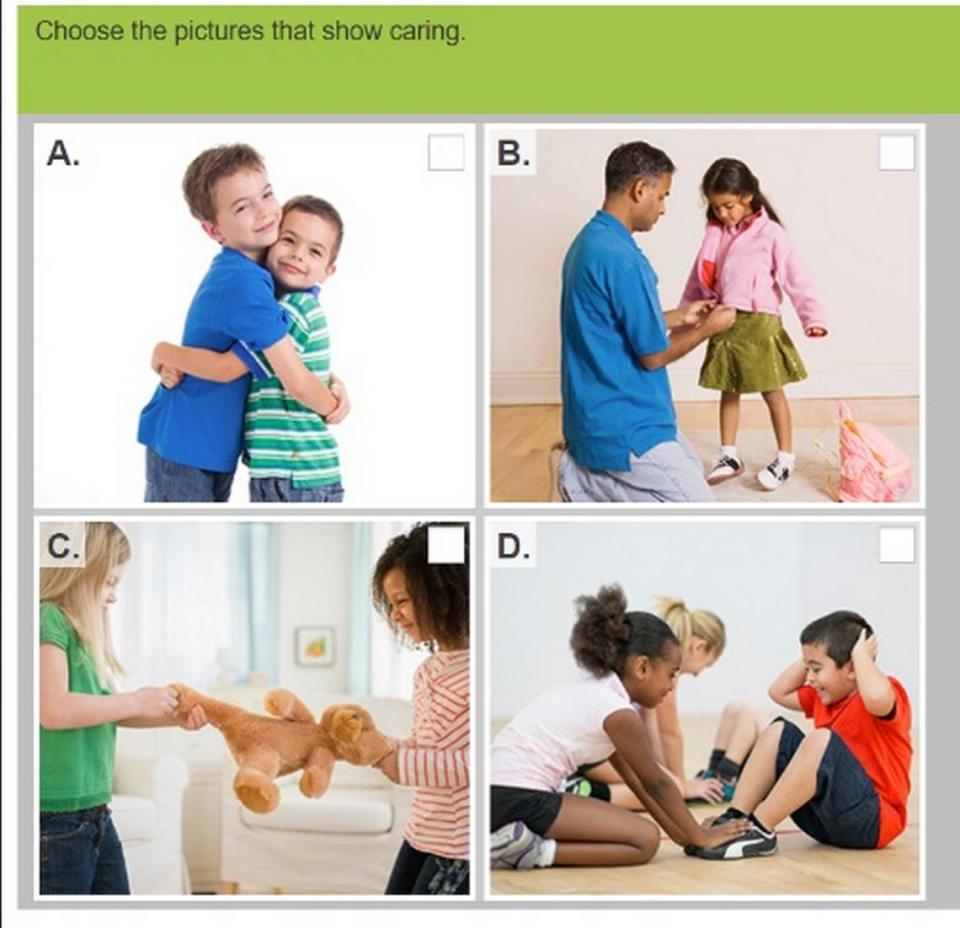
Eight books from this publishing house were rejected, some flagged for including “special topics” that the state has identified as problematic. This kindergarten text did not have that designation.
But in many of the chapters, it seeks to address children’s emotional growth and interpersonal relationships, which are basic tenets of social-emotional learning.
Company officials allowed the Times access to its digital content but declined to be interviewed. They issued a statement saying the company has worked closely with the state and respects the importance of the approval process.
Social Studies Alive! My School and Family
Grade 1. Published by Teachers’ Curriculum Institute.

This second book in the “Social Studies Alive!” series is marked as containing prohibited “special topics.” It’s not clear what the problem was, but here is another example of a student exercise that seeks to teach cooperation and character, which are elements of social-emotional learning.
Social Studies Alive! Florida and Its People
Grade 4. Published by Teachers’ Curriculum Institute.
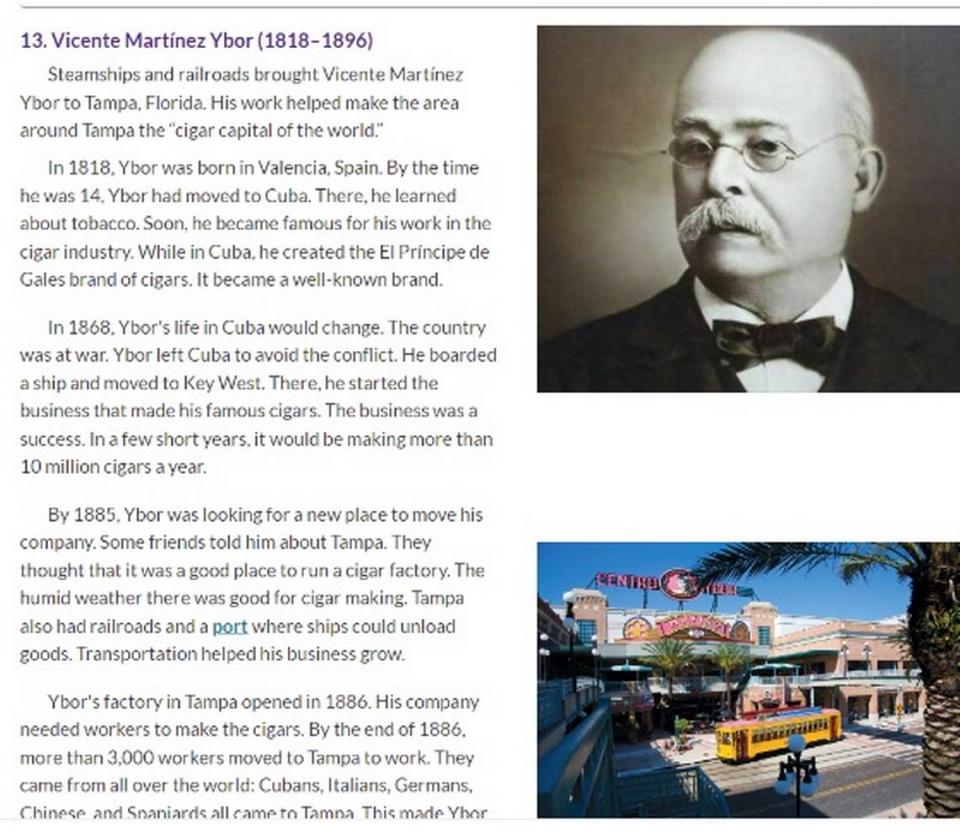
In this installment of the series, students learn about the waves of Indigenous communities and global settlers to Florida, including Europeans, African slaves and later immigrants from Latin America.
There are chapters on the civil rights movement and developers, including Henry Flagler, Henry Bradley Plant, Julia Tuttle and Vicente Martínez Ybor. The book also explores Florida’s role in the Civil War. It’s not marked as having any problematic “special topics,” so the reasons for the state rejecting it remain unclear.
Social Studies Alive! America’s Past
Grade 5. Published by Teachers’ Curriculum Institute.
This is another of the books said to include “special topics” of concern by the state. One possible problem: The book explores harsh treatment of Native Americans and Chinese railroad workers in the 19th century. Those lessons are reinforced in a game at the end of the chapter.
The state prohibits topics that are “potential components” of critical race theory. That includes the notion that “an individual should feel discomfort, guilt, anguish, or any other form of psychological distress on account of his or her race, color, sex, or national origin.”
Gateway to Early American History
Grades 6-8. Published by Florida Transformative Education.
The 15-chapter, three-part text covers Christopher Columbus’ voyage to the Reconstruction era following the Civil War, according to the website. Author and publisher Mark Jarrett told the Times he did not believe any content in the book was controversial. He said no dramatic changes would need to be made, and the company intends to go through the standards flagged by reviewers and resubmit.
Two other books from the same publisher were accepted. Jarrett said the book’s contents were similar. This text was not marked for the inclusion of “special topics.”
Civics Alive! Foundations and Functions
Grades 6-8. Published by Teachers’ Curriculum Institute.
Over seven units and 20 chapters, the book covers basic topics about citizenship and the rules of law through the Bill of Rights, political campaigns, global issues and understanding economics. The second lesson on forms of government seeks to teach “the advantages of the United States’ constitutional republic over other forms of government in safeguarding liberty, freedom and a representative government.”
The book also stresses the advantages of a federal system of government and the benefits of capitalism and the free market in the U.S. when compared with government-controlled economic systems elsewhere. It was flagged as having prohibited “special topics” but it was unclear where those existed.
American History
Grades 9-12. Published by ABC-CLIO.
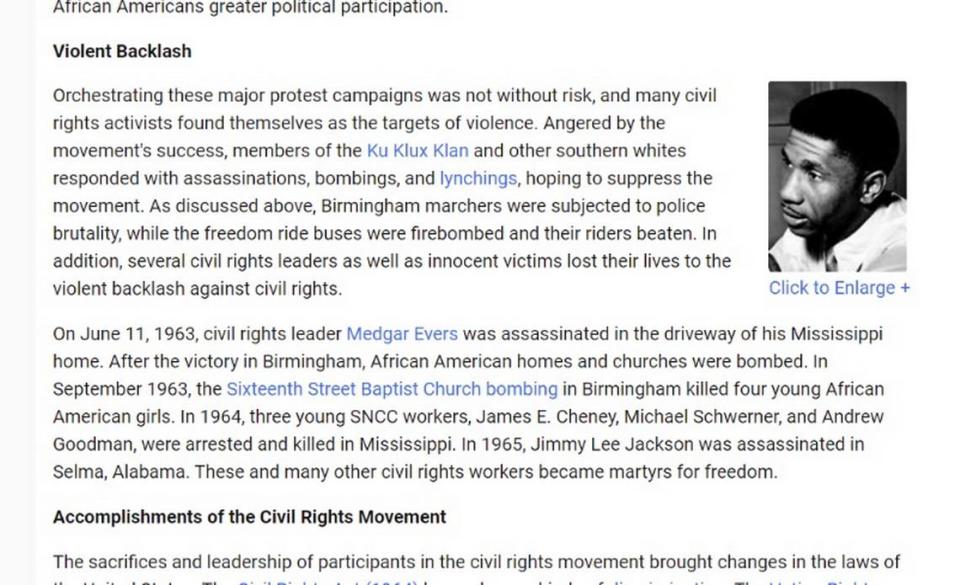
This high school history book includes material about segregation, the Jim Crow era and redlining. It also recounts the civil rights movement of the mid-20th century with descriptions including the paragraphs above that follow a discussion of “Freedom Summer” in 1964.
On its list of rejected books, the state said this title contained “special topics” but has not stated what those were.
The African-American Experience
Grades 9-12. Published by ABC-CLIO.

This book goes into detail about segregation and discrimination, police brutality and the Black Lives Matter protest following the murder of George Floyd in 2020. In its description of the years during President Donald Trump’s administration, the authors note Trump’s role in perpetuating the “birtherism” conspiracy about his predecessor, Barack Obama. They also write that the former president drew criticism for his slowness to denounce white nationalists at a rally in Charlottesville, Virginia, and for his remarks that “both sides” were to blame for the violence that erupted there.
The state has not explained why it rejected this title, though there are many issues regarding race that are prohibited from appearing in Florida textbooks. One of them is the notion that “an individual, by virtue of his or her race, color, sex, or national origin, is inherently racist, sexist, or oppressive, whether consciously or unconsciously.”
The book also includes a chapter on institutional racism — another frowned-upon topic — that includes the passage below:
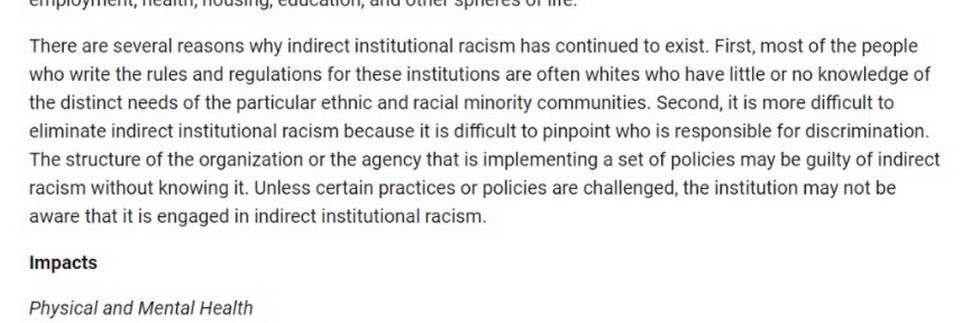
Living Smarter
Grades 9-12. Published by Achievements Educational Services.
The 370-page textbook from this Brooklyn, New York-based publisher covers basic financial literacy, from how to write a resume to step-by-step guides on filing taxes. Early chapters emphasize the importance of savvy spending and strategies for saving money. Later chapters discuss investing, insurance and identity theft.
On the state’s 5-point grading scale, Living Smarter has one of the lowest scores. The textbook was not flagged for inclusion of “special topics” and does not appear to cover critical race theory or social-emotional learning. Achievements Educational Services CEO Naftali Frankel said the state Department of Education had not contacted him regarding the rejection.
Foundations in Personal Finance-Honors
Grades 9-12. Published by Ramsey Solutions.

This book is one of numerous products offered by a company headed by Dave Ramsey, a Tennessee-based entrepreneur, financial counselor, author, motivational speaker, radio host, podcast host and television personality.
Spokespeople for Ramsey said one of their two textbooks was accepted but the other was not. A third-party reviewer questioned whether the material in the second book conformed closely enough with Florida’s education standards. They were not specific.
Jessica Britton, the company’s associate director of educational products, said there was probably fault on both sides. The reviewer did not look at the correct material, she said. But, she added, “We could have done a better job of seeing that the standards were met,” perhaps by improving student review questions. She expects they will resolve their differences in time for the 2023-24 school year.
Modern Genocide
Grades 9-12. Published by ABC-CLIO.
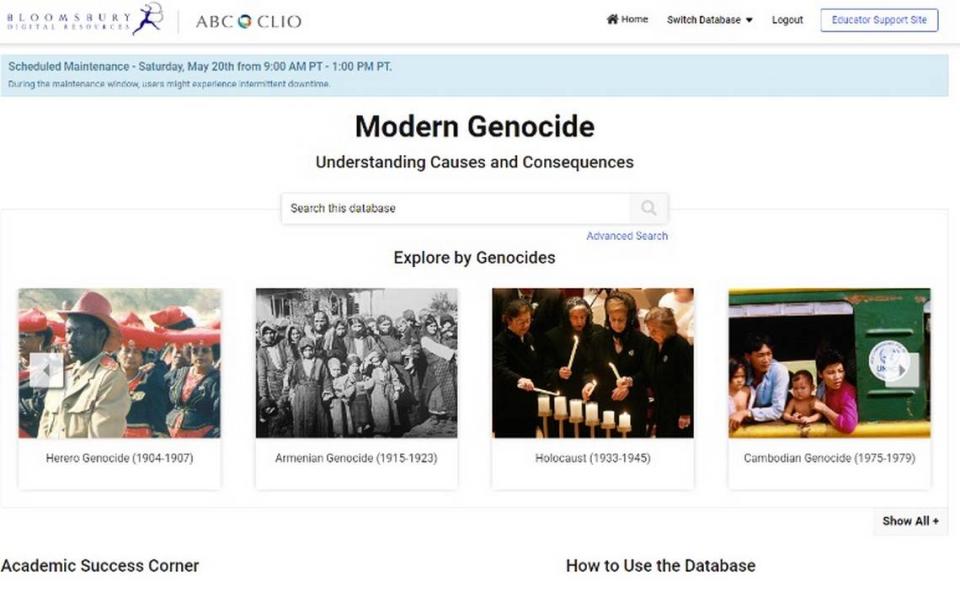
This textbook takes students through a number of global genocides, including the Holocaust in World War II and continuing on to Cambodia, East Timor, Guatemala, the Kurdish people in Iraq, Bosnia, Rwanda and Darfur.
Going back earlier than World War II, the book explores the Herero genocide of 1904-1907 in what is now the southwestern African nation of Namibia. Following German settlement of that land, the authors write that as many as 80% of the Herero people, as well as 50% of the 20,000 Nama people and lesser numbers of other populations, lost their lives.
The state flagged this title for containing “special topics” of concern but has not explained what those were.
History of the Holocaust
Grades 9-12. Published by eDynamic Holdings LP.

This high school textbook takes readers from the rise of antisemitism in Europe through the creation of concentration camps and death camps, non-Jewish victims of the Holocaust and Nuremberg trials. There is a passage at the end on modern genocide in places such as Cambodia and Darfur.
Tyler Wood, a spokesperson for eDynamic, said it’s unclear why the book was not approved, and company officials are communicating with staff at the state education department. The state did not flag the title as containing “special topics” of concern.
In conversations with the education department, the company said in a prepared statement: “It is clear that the (Department of Education) sees the benefit of this curriculum for students but wants to ensure that all state standards for the curriculum have been addressed. eDynamic Learning will be participating in the Department’s appeal process in hopes of highlighting the evidence that our curriculum meets that state standards.“

